Introduction To Watermelon
Watermelon is a refreshing fruit that is perfect for hot summer days. This juicy fruit is made up of 92% water, making it an excellent way to hydrate your body. Not only is it hydrating, but watermelon is also rich in nutrients that can benefit your overall health.
Watermelon is a member of the Cucurbitaceae family and is related to other fruits such as cantaloupe and honeydew. It has a green rind and a juicy red flesh that is sweet and refreshing. It is also packed with vitamins A, B6, and C, as well as potassium and lycopene, a powerful antioxidant.
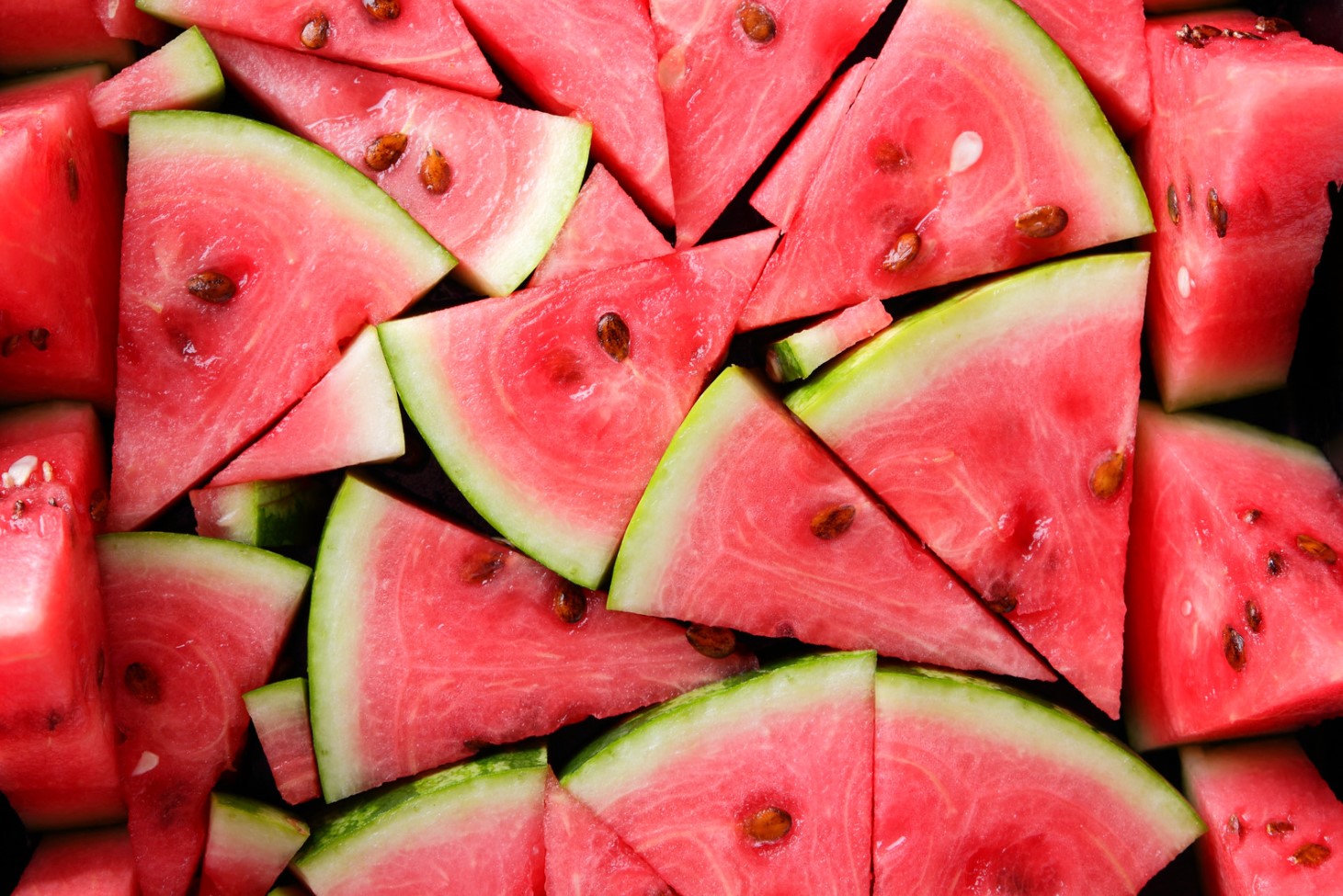
- Watermelon is low in calories and fat, making it the perfect snack for those who are watching their weight.
- It is also a good source of citrulline, an amino acid that can help improve blood flow and reduce muscle soreness after exercise.
- When consumed regularly, watermelon can also help improve heart health and boost your immune system.
There are many ways to enjoy watermelon, whether it be sliced or diced, blended into a refreshing smoothie, or even grilled! Its versatility and delicious taste make it a popular choice among many.
| Vitamins | Amount per 100g |
|---|---|
| Vitamin A | 11% RDA |
| Vitamin B6 | 5% RDA |
| Vitamin C | 13% RDA |
In conclusion, watermelon is a delicious and nutritious fruit that can provide many health benefits. Whether you are looking to improve your overall health or just want a refreshing snack, watermelon is a great choice. So next time you are at the grocery store, be sure to pick up a watermelon and enjoy all that this amazing fruit has to offer!
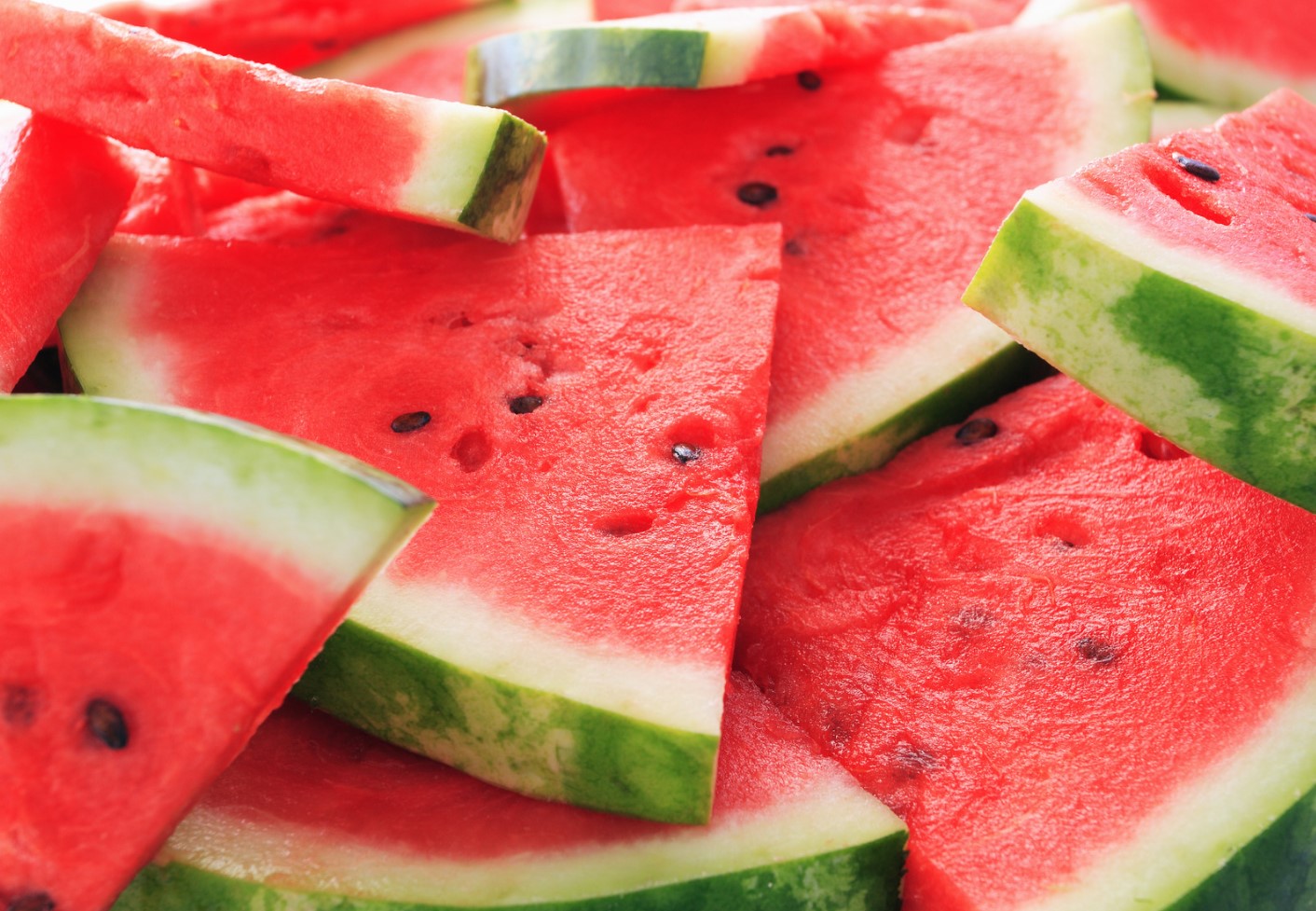
Nutritional Value Of Watermelon
Watermelon is a refreshing and delicious fruit that is perfect for hot summer days. It is not only tasty, but it is also packed with vitamins and minerals that are essential for our health. One of the reasons why watermelon is so good for us is because of its high nutritional value.
Watermelon is a great source of vitamin C which is important for our immune system, promoting healthy skin, and wound healing. It is also a good source of vitamin A, which plays a vital role in eye health and immune function. Watermelon also contains vitamin B6, which helps our body to produce energy, and potassium which helps to regulate our blood pressure.
- Watermelon is also high in antioxidants such as lycopene. Lycopene is a type of carotenoid that is responsible for the red color in watermelon. It has been shown to help protect our cells from damage and reduce the risk of chronic diseases such as heart disease and cancer.
- Watermelon is also a great source of hydration. It has a high water content and can help to keep us hydrated on hot summer days. This makes it an excellent choice for athletes and anyone who spends a lot of time outdoors.
| Nutrient | Amount per 100g |
|---|---|
| Calories | 30 |
| Protein | 0.6g |
| Fat | 0.2g |
| Carbohydrates | 7.6g |
| Fiber | 0.4g |
| Sugar | 6.2g |
In conclusion, watermelon is not only delicious but also has numerous health benefits. It is a great source of vitamins, minerals, and antioxidants, and it is also hydrating. So, the next time you are looking for a healthy snack, reach for a piece of watermelon and enjoy all the benefits that this tasty fruit has to offer.
Health Benefits Of Watermelon Consumption
Watermelon, a delicious and refreshing fruit, has become a popular summer staple among many, not only because of its sweetness but also because of its nutritional and health benefits. One of the most notable benefits of watermelon is its ability to promote good health. Here we’ll take a closer look at the health benefits of watermelon consumption.
Firstly, watermelon is composed of approximately 92% water, which makes it an excellent source of hydration. Regular consumption of watermelon can also help regulate body temperature, maintain kidney function, and support proper digestion. It is also believed that the high water content in watermelon can help with weight loss as it aids in increasing feelings of fullness.
- Watermelon is also rich in essential vitamins and minerals, such as vitamin C, vitamin A, potassium, and magnesium.
- Vitamin C is a potent antioxidant that helps to protect the body against free radical damage and improves collagen production, which maintains healthy skin and hair.
- Vitamin A helps to promote good vision and immune system function.
- Potassium is essential for good heart health as it helps regulate blood pressure and control heart rate.
- Magnesium helps with muscle function and aids in maintaining strong bones.
Another benefit of watermelon consumption is its ability to promote heart health. The high levels of lycopene, an antioxidant present in watermelon, can help reduce the risk of heart disease and stroke by reducing inflammation and improving circulation. Moreover, consuming watermelon has been linked to reducing muscle soreness and speeding up recovery post-workout. Watermelon contains citrulline, an amino acid that can help reduce muscle soreness and improve endurance, thus making it an ideal pre and post-workout snack.
Lastly, watermelon contains natural compounds called phytonutrients or flavonoids, which exhibit anti-inflammatory and antioxidant properties. These compounds can help boost the immune system and protect the body against various diseases and illnesses.
- In conclusion, watermelon is an excellent source of hydration and nutrition with a plethora of health benefits.
- Regular consumption of watermelon can help promote good health, support weight loss, improve heart health and immune function, and reduce muscle soreness and inflammation.
- Adding watermelon to your daily diet can be an excellent way to increase your nutrient intake and promote overall well-being.
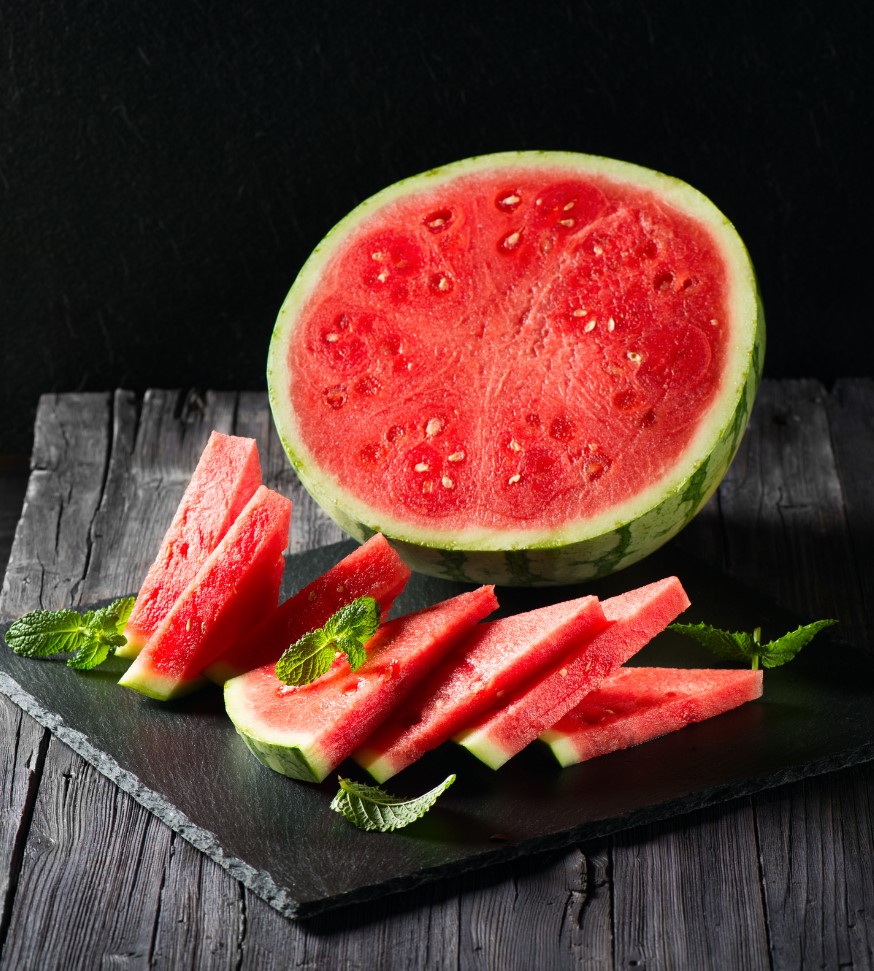
Watermelon For Hydration And Weight Loss
Watermelon is a delicious fruit that is widely consumed during the summer season. It is not only refreshing but healthy too. The fruit has a high percentage of water content which makes it perfect for hydration in hot weather. In addition to that, watermelon is also known for its ability to promote weight loss.
A juicy slice of watermelon is the perfect snack to quench thirst and satisfy hunger. Due to its high water content, watermelon is an excellent fruit to include in your diet for hydration purposes. One cup of diced watermelon has about 92% water content, which is great for anyone who wants to stay hydrated during the hot weather.
- Hydration: Watermelon is an excellent source of hydration because it is mostly water. Drinking water is good for hydration, but eating water-rich foods like watermelon can help you meet your daily hydration needs.
- Weight Loss: The fruit is also known for its ability to promote weight loss. Being low in calories and high in fiber, watermelon can help you feel full for longer periods of time, which ultimately aids weight loss.
In addition to its hydration and weight loss benefits, watermelon also contains other nutrients that are beneficial to our health. For example, it contains vitamin C, vitamin A, potassium, and lycopene. These nutrients are essential for maintaining good overall health.
| Hydration and Weight Loss: | Nutrients: |
|---|---|
| 1. Watermelon is mostly water, making it an excellent source of hydration. 2. Being low in calories and high in fiber, it promotes weight loss. |
1. High in vitamin C, vitamin A, and potassium 2. Contains lycopene which is a powerful antioxidant. |
When it comes to weight loss, a low-calorie diet that includes plenty of fruits and vegetables is the best way to go. Adding watermelon to your diet can help, but it should not be the only thing you eat. Instead, focus on eating a balanced diet and incorporating physical activity into your lifestyle.
Conclusion: Watermelon is a healthy and refreshing fruit that promotes hydration and weight loss. It is also a great source of important nutrients like vitamin C, vitamin A, and potassium, and contains lycopene, a powerful antioxidant. However, it should not be the only food in your diet. Instead, focus on eating a balanced diet and incorporating physical activity into your lifestyle to achieve overall good health.
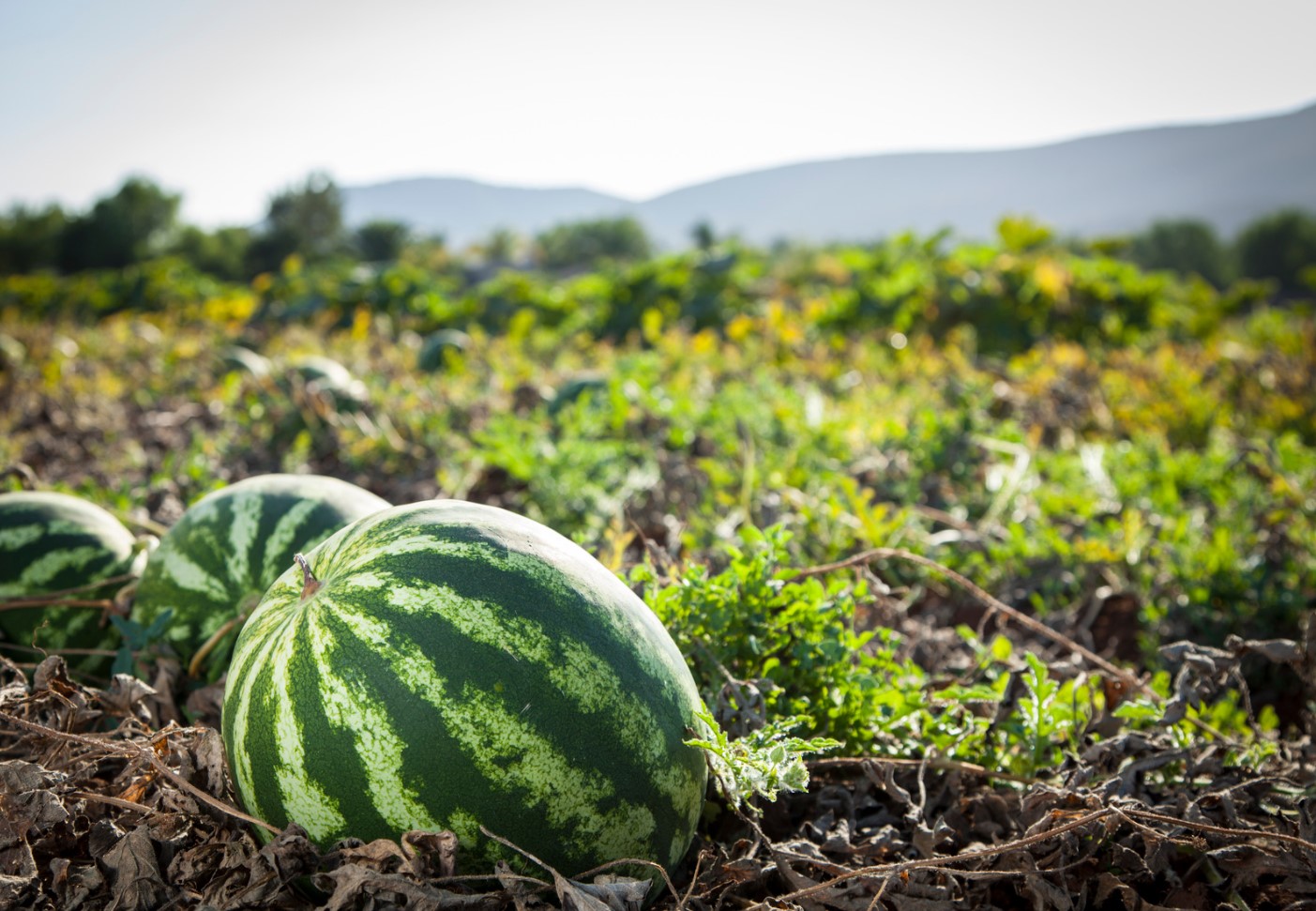
Watermelon For Heart Health
Watermelon is a delicious fruit that is not only refreshing but also highly nutritious. It is rich in vitamins A and C, as well as minerals like potassium and magnesium. However, did you know that watermelon is also great for your heart health? Yes, it is! Eating this fruit could help you maintain good cardiovascular health and prevent heart disease.
One of the reasons that watermelon is good for your heart is its high content of lycopene. Lycopene is a powerful antioxidant that helps to counteract free radicals in the body. These free radicals can cause cell damage and inflammation, which are two of the main contributors to heart disease. Studies have shown that consuming lycopene-rich foods like watermelon can help to reduce the risk of heart disease and stroke.
- Another way that watermelon benefits your heart health is by lowering blood pressure. High blood pressure is a significant risk factor for heart disease, and consuming watermelon regularly could help to keep your blood pressure in check. This is because watermelon contains citrulline, an amino acid that helps to relax blood vessels and improve blood flow.
- In addition to this, watermelon can also reduce inflammation in the body. Chronic inflammation is another significant contributor to heart disease and other chronic illnesses. The anti-inflammatory properties of watermelon can help to reduce inflammation and protect against heart disease.
- Lastly, watermelon is an excellent source of hydration, and keeping your body hydrated is vital for maintaining good cardiovascular health. When you are dehydrated, your heart has to work harder to pump blood through your body, which can put extra strain on it. Eating watermelon can help to keep you hydrated and support your heart health.
In conclusion, watermelon is not only a delicious and refreshing fruit, but it is also great for your heart health. Its high content of lycopene, ability to lower blood pressure, anti-inflammatory properties, and hydration benefits all contribute to maintaining good cardiovascular health. So, next time you are looking for a snack or a refreshing drink, reach for some juicy watermelon!
Watermelon For Muscle Soreness And Recovery
Watermelon is known for its refreshing taste and high water content, but did you know that it can also help with muscle soreness and recovery? That’s right! Drinking watermelon juice before or after a workout can help ease muscle soreness and improve recovery time.
This is because watermelon is rich in an amino acid called L-citrulline, which helps in the production of nitric oxide. Nitric oxide is a vasodilator that improves blood flow and oxygen delivery to the muscles. This increased blood flow can reduce muscle soreness after a workout and also help in post-workout recovery. Watermelon is also rich in potassium, which helps in proper muscle function and can reduce the risk of cramps during exercise.
- In addition to drinking watermelon juice, you can also try snacking on watermelon for a quick and healthy pre-workout snack.
- Watermelon is also a great post-workout snack as it can help to replenish lost fluids and electrolytes.
- If you don’t like the taste of watermelon juice, you can add it to a smoothie with other fruits and vegetables.
Watermelon is a great addition to any workout routine, as it not only helps with muscle soreness and recovery, but it also provides hydration and essential nutrients. So next time you hit the gym, don’t forget to grab some watermelon on your way out!
Watermelon For Skin And Hair Health
Watermelon is not just a tasty fruit, but it is also good for our overall health. It is not only delicious, but it is also a great source of nutrition. Watermelon is packed with vitamins and minerals that are beneficial for our skin and hair health. This juicy fruit is rich in vitamins A, C, and E, which play an important role in keeping our skin and hair healthy and youthful.
Consuming watermelon regularly can not only help with hydration but also prevent acne, wrinkles, and skin damage caused by UV rays. Vitamin A, found in watermelon, is essential for the growth and repair of skin cells. This vitamin also helps to produce sebum, which keeps our hair healthy and shiny. Vitamin C, on the other hand, helps to protect our skin from UV damage and promotes collagen production, which keeps our skin firm and supple.
- Watermelon is also rich in potassium, which is essential for hair growth and strength. This mineral helps to promote healthy blood circulation, which delivers essential nutrients to hair follicles.
- The high water content in watermelon helps to keep our skin hydrated, which is essential for healthy skin. Dehydrated skin can cause dullness, fine lines, and wrinkles, so it is essential to keep our skin hydrated.
| Benefits of Watermelon for Skin and Hair |
|---|
| Hydrates the skin |
| Prevents acne and pimples |
| Prevents premature aging |
| Nourishes the hair |
| Stimulates hair growth |
Watermelon is not only good to eat, but it can also be used as a natural ingredient in beauty treatments. Its antioxidant properties help to rejuvenate the skin and protect it from damage caused by free radicals. You can make a facial toner by blending watermelon and using it as a toner, which will help to refresh and revitalize your skin.
In conclusion, watermelon is not only delicious but also loaded with nutrients that are beneficial for our skin and hair. Adding watermelon to your diet can help you achieve healthy and glowing skin and hair. So, the next time you enjoy a watermelon, remember its skin and hair benefits as well!
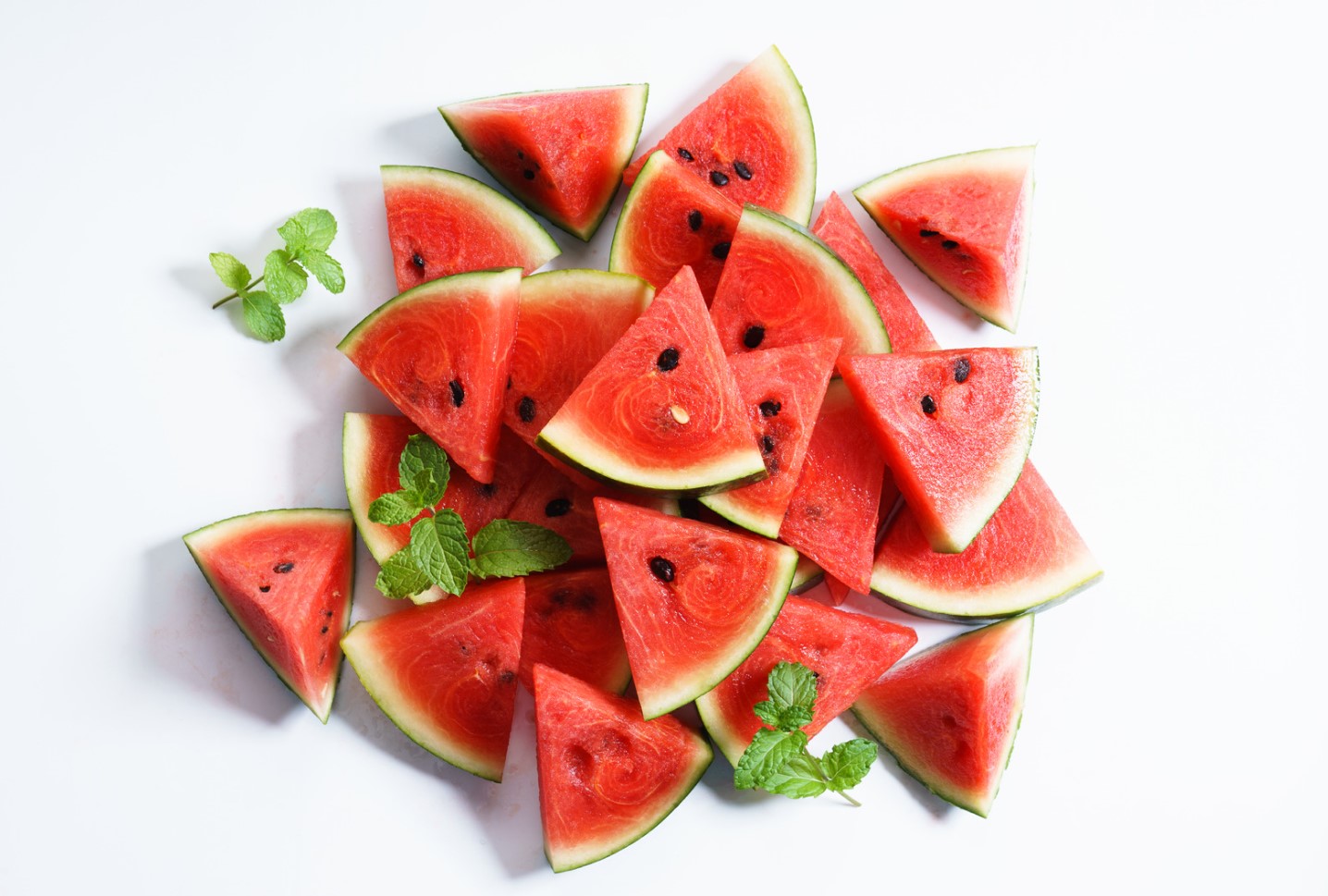
Watermelon For Immune System Support
Watermelon is not only a delicious fruit, but it also has numerous health benefits. One of the most important benefits of watermelon is that it can boost your immune system. The immune system is the body’s defense mechanism that protects against infectious organisms and other invaders. A strong immune system can help protect you from diseases and illnesses.
Watermelon contains many nutrients that are essential for a healthy immune system, such as vitamins A and C, beta-carotene, and lycopene. Vitamin A is important for maintaining healthy skin, while vitamin C is a powerful antioxidant that helps protect cells from damage. Beta-carotene is a precursor to vitamin A and also has antioxidant properties. Lycopene is a phytonutrient that has been shown to have anti-inflammatory properties.
- Vitamin A helps maintain healthy skin
- Vitamin C is a powerful antioxidant that protects cells
- Beta-carotene is a precursor to vitamin A and has antioxidant properties
- Lycopene has anti-inflammatory properties
In addition to these nutrients, watermelon also contains a high level of water, which can help keep your body hydrated. When your body is hydrated, your immune system can function properly, making it more effective at fighting off infections and illnesses.
| Nutrient | Amount per 100g |
|---|---|
| Vitamin A | 569 IU |
| Vitamin C | 8.1 mg |
| Beta-carotene | 3032 mcg |
| Lycopene | 4532 mcg |
Furthermore, watermelon also contains an amino acid called citrulline. This amino acid has been shown to have immune-boosting properties. Citrulline helps increase the production of nitric oxide in the body, which can help stimulate the immune system, making it more effective at fighting off infections and illnesses.
In conclusion, watermelon is not only a delicious fruit but also a powerful immune-boosting food. Its high content of vitamins A and C, beta-carotene, lycopene, and water, along with citrulline, make it a great addition to your diet to keep your immune system strong and healthy.
Antioxidant Properties Of Watermelon
Watermelon is not only a refreshing and delicious fruit, but it also has a variety of health benefits that can help boost our overall wellbeing. One of these benefits is its antioxidant properties. Antioxidants are substances that protect our cells from damage caused by free radicals, which are unstable molecules that can contribute to diseases.
Antioxidants are essential for maintaining good health and preventing chronic illnesses. Watermelon is a rich source of antioxidants, particularly Vitamin C and Lycopene. Vitamin C is well-known for its immune-boosting properties, while Lycopene has been linked to a reduced risk of cancer and heart disease. These antioxidants work together to neutralize free radicals and protect our cells from damage.
- Vitamin C
- Lycopene
In addition to Vitamin C and Lycopene, watermelon also contains other antioxidants such as beta-carotene, cryptoxanthin, and zeaxanthin. These antioxidants have been linked to better vision, improved immune function, and reduced inflammation.
| Antioxidants | Function |
|---|---|
| Vitamin C | Immune-boosting |
| Lycopene | Reduced risk of cancer and heart disease |
| Beta-carotene | Better vision |
| Cryptoxanthin | Improved immune function |
| Zeaxanthin | Reduced inflammation |
Watermelon is also low in calories and high in water content, making it a great snack for weight management and hydration. So, not only is watermelon good for our health, but it’s also a tasty and refreshing way to stay hydrated during hot summer days.
In conclusion, watermelon is an excellent source of antioxidants that can help protect our cells from damage caused by free radicals. Its high content of Vitamin C, Lycopene, and other antioxidants make it a valuable addition to our diets. So, the next time you see a juicy watermelon, be sure to indulge in its delicious and healthy benefits!
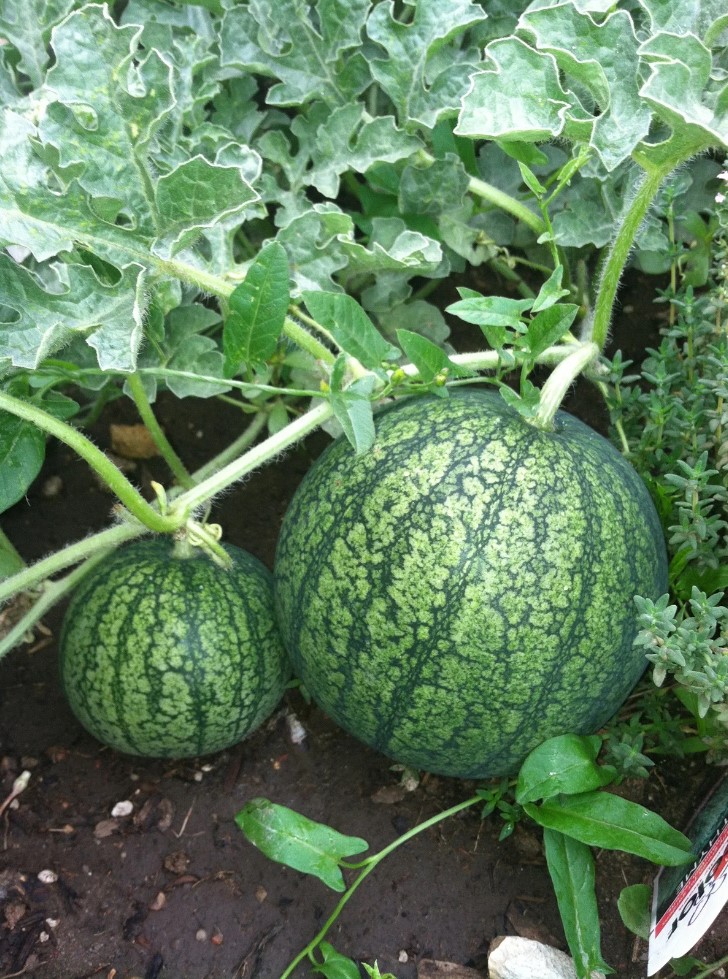
Watermelon As A Natural Viagra
If you are looking for a natural and effective way to boost your libido, you might want to consider adding watermelon to your diet. It might come as a surprise, but watermelon has been dubbed as a natural viagra, which means that it can help improve erectile dysfunction and enhance sexual performance.
One of the reasons watermelon is considered a natural viagra is because it contains compounds that promote blood vessel dilation, including citrulline and arginine. These amino acids help to increase blood flow to the penis, which is essential for achieving and maintaining an erection. In fact, a study conducted by the University of Texas found that consuming watermelon can have similar effects on blood vessels as viagra.
- Watermelon is a refreshing and delicious fruit that is packed with nutrition. It is low in calories and high in vitamins A and C, as well as potassium and lycopene.
- The high water content in watermelon makes it an excellent choice for staying hydrated, especially during the hot summer months. It can also help promote weight loss by filling you up with its high fiber content and low calorie count.
- In addition to its benefits for sexual health, watermelon is also good for heart health. The antioxidants and amino acids in watermelon can help reduce inflammation and lower the risk of heart disease.
To enjoy the benefits of watermelon as a natural viagra, you can simply add it to your diet by eating it fresh, adding it to smoothies, or making a refreshing watermelon sorbet. Just make sure to choose a ripe and juicy watermelon, as this will contain higher levels of citrulline and arginine.
In conclusion, watermelon is not only a delicious and refreshing fruit but also has many health benefits. One of the most exciting benefits is its ability to improve sexual health and performance naturally. Whether you are struggling with erectile dysfunction or looking to boost your libido, adding watermelon to your diet might just be the solution you need.
History Of Watermelon Cultivation
Watermelon is a delicious fruit that has been enjoyed for centuries. Its sweet taste and refreshing nature make it a popular fruit, especially during the summer months. While most people may take for granted the availability of watermelon today, its cultivation has an interesting history that dates back thousands of years.
Watermelon is believed to have originated in Africa, specifically in the Kalahari Desert region. Its cultivation can be traced back to ancient Egypt where the fruit was highly regarded as a source of hydration for travelers crossing the desert. Ancient Egyptians also believed that watermelon had healing properties and used it to treat different ailments.
- One interesting fact about watermelon is that the first recorded watermelon harvest occurred in Egypt over 5,000 years ago.
- The fruit eventually made its way to other parts of the world such as China, where it was also highly valued. Chinese immigrants introduced watermelon to the United States during the 17th century.
- Today, watermelon is cultivated in over 100 countries around the world, with China being the largest producer.
Watermelon has come a long way since its early cultivation in Africa. Through the centuries, it has become a symbol of summer, community, and social gatherings. Its popularity has also increased due to its numerous health benefits which have been researched and scientifically proven.
| Watermelon contains about 92% water and is considered one of the most hydrating fruits. | Watermelon is a good source of vitamins A, B6, and C, as well as potassium and dietary fiber. |
| The first cookbook published in the United States in 1796 featured a watermelon dessert recipe. | The world’s heaviest watermelon weighed over 350 pounds. |
Watermelon has a rich history that spans across ancient civilizations and modern times. Its cultivation journey has resulted in improved varieties that are both delicious and nutritious. Today, watermelon remains a popular fruit for its refreshing taste, numerous health benefits, and rich history.
Watermelon İn Ancient Times
The juicy and refreshing watermelon has been enjoyed for centuries. It’s a fruit that has been a part of human civilization for a long time, and its popularity still holds true today. In this blog post, let’s take a look back in time and explore the historical significance of watermelon.
History of Watermelon Cultivation
The origin of watermelon is believed to be in Africa, where it was first cultivated over 5,000 years ago. The fruit quickly spread to other parts of the world, including Egypt, India and Rome. In ancient Egypt, watermelon was considered a symbol of fertility, and it was often placed in tomb paintings and burials. It was also used in religious ceremonies, and it was even found in the tomb of King Tutankhamun. By the 10th century, watermelon had made its way to China, where it was cultivated in abundance and was popular among the upper class.
Watermelon in Modern Times
Today, watermelon is found all around the world, and it is one of the most beloved fruits. The biggest producing countries are China, Turkey, Iran, Brazil and Egypt. In the United States, watermelon is grown primarily in Florida, Georgia, Texas, California and Indiana. Watermelon is enjoyed in a variety of ways, from being eaten fresh to being used in salads and drinks. The fruit is also rich in vitamins and minerals, making it a great addition to any diet.
| Varieties of Watermelon | Benefits |
|---|---|
| Crimson Sweet | High in antioxidants and vitamin C |
| Sugar Baby | Good source of potassium and magnesium |
| Jubilee | Rich in lycopene, a powerful antioxidant |
Watermelon has a fascinating history, and its journey from ancient Egypt to modern-day is a testament to its enduring popularity. Whether you’re eating it fresh or incorporating it into your meals, watermelon is a delicious and nutritious fruit that will continue to be enjoyed for generations to come.
Watermelon İn Modern Times
Watermelon has been known as one of the most refreshing and delicious fruits. It is packed with nutrients that can bring tremendous benefits to our health, and it has been widely enjoyed for centuries. Today, watermelon is still as popular as ever, and it continues to be an important ingredient in many dishes and drinks, especially during the summer season.
One particular trend that has emerged in recent years is the rise of watermelon-based products. These products come in various forms, such as watermelon juice, smoothies, popsicles, and even watermelon-based skincare products. The demand for these products has been steadily increasing, as more people become aware of the potential benefits of watermelon.
The popularity of watermelon in modern times can also be attributed to its versatility in the kitchen. It can be eaten on its own or used in various recipes, such as salads, salsas, and desserts. Watermelon is a high-volume food, which means that it has a high water content and low calorie count, making it an ideal ingredient for those who are watching their weight.
- Watermelon is also a popular choice for athletes and fitness enthusiasts. It contains citrulline, an amino acid that helps to improve blood flow and enhance exercise performance. Drinking watermelon juice before a workout can help to reduce muscle soreness and aid in recovery.
- Moreover, watermelon has been found to have anti-inflammatory properties, which can be beneficial for those with chronic inflammation and autoimmune diseases. It is also rich in antioxidants, such as lycopene, which can help to protect against cancer and other diseases.
Last but not least, the accessibility and affordability of watermelon in modern times have made it a go-to fruit for many people. It is widely available in supermarkets and fruit stands, and it can be grown in many parts of the world. With its numerous health benefits and delicious taste, it is no wonder that watermelon continues to be a favorite fruit for people of all ages and backgrounds.
Varieties Of Watermelon And Their Benefits
Watermelon is a sweet and juicy fruit. But did you know that there are actually different varieties of watermelon? Each variety has its own unique taste and benefits. In this blog post, we will explore the varieties of watermelon and their benefits.
1. Seedless Watermelon
Seedless watermelon, as the name suggests, contains no seeds. This variety of watermelon is perfect for those who do not want to deal with the hassle of removing the seeds. Seedless watermelon is also sweeter than seeded watermelon. It has a higher sugar content which makes it perfect for making desserts.
2. Yellow Watermelon
Yellow watermelon is a rare variety of watermelon. It is sweeter than red watermelon and has a honey-like taste. Yellow watermelon is also packed with vitamin A, which is good for eye health.
3. Mini Watermelon
Mini watermelon is smaller in size compared to regular watermelon. It is perfect for those who do not want to buy a large watermelon. Mini watermelon is also easier to store and transport. It has a milder taste compared to regular watermelon.
| Watermelon Variety | Benefits | Taste |
|---|---|---|
| Seedless | No hassle of removing seeds, sweeter | Very sweet |
| Yellow | Packed with vitamin A, sweet honey-like taste | Very sweet |
| Mini | Easier to store and transport, milder taste | Milder than regular watermelon |
Watermelon is an excellent source of hydration and is low in calories. It is also rich in nutrients like vitamin A, vitamin C, and potassium. No matter which variety of watermelon you choose, you are sure to enjoy the many benefits that watermelon has to offer.
In conclusion, watermelon is a versatile fruit that comes in many varieties. Each variety has its own unique taste and benefits. If you haven’t already, be sure to try different varieties of watermelon to see which one you like best.
Conclusion On Benefits Of Watermelon Consumption
Watermelon is a refreshing summer fruit that has a host of benefits for the body. From being a great source of hydration to providing essential vitamins and minerals, watermelon is a must-have in your daily diet. In this blog post, we will explore the various benefits of watermelon consumption and conclude on why this fruit should be a staple in your food regimen.
Firstly, watermelon is an excellent source of hydration. As the name suggests, it is made up of 92% water, which is essential for maintaining optimal bodily functions. Consuming watermelon can help to keep the body hydrated, especially during those hot summer days.
Secondly, watermelon is loaded with nutrients that are important for your health. It contains vitamins A, B6, and C, as well as lycopene, potassium, and amino acids. These nutrients have been known to help prevent cancer, support heart health, reduce inflammation, and improve muscle function.
Lastly, watermelon is a low-calorie, high-fiber fruit that can aid in weight loss. Its high water content makes it a filling snack that can help to stave off hunger pangs without adding excess calories to the diet.
| Conclusion |
|---|
| Watermelon consumption has many benefits for the body. It is an excellent source of hydration, loaded with essential nutrients, and can aid in weight loss. Incorporating watermelon into your daily diet can help you achieve optimal health and wellness. So go ahead and indulge in this juicy fruit guilt-free! |